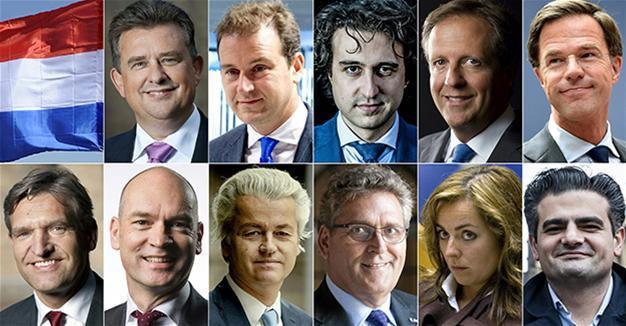Dutch voters head to ballot boxes
AMSTERDAM

Polls suggest results could be close in the Netherlands’ parliamentary elections on March 15, with Prime Minister Mark Rutte’s VVD Liberal party returning as the largest party in the 150-seat parliament by a whisker.
The elections are being closely watched as a signal of the possible rise of far-right and populist parties in Europe, with key elections also planned this year in France and Germany.
Rutte clashed with his main rival anti-Islam MP Geert Wilders on March 13 in a televised debate, as they laid out starkly opposing visions of their country’s future in an election campaign now consumed by a diplomatic row with Turkey.
The row with Turkey has provided fodder for Wilders and his uncompromising anti-immigration stance.
“You are being taken hostage by [Turkish President Recep Tayyip] Erdoğan. Close the Dutch borders,” Wilders told Rutte, as tempers flared in the 30-minute head-to-head debate.
“That’s a totally fake solution,” Rutte shot back, “You want Nexit, you want The Netherlands out of Europe. You know what it will cost ... don’t do it.”
Wilders, who says he is on a mission against the “Islamisation” of the country, has promised to shut his country’s borders to Muslim immigrants, close mosques and ban the sales of Korans.
The VVD is predicted to return as the largest party in parliament with some 23 to 27 seats, according to the latest aggregated polls, which is well down from the 40 VVD MPs in the outgoing lower chamber. However, it would leave Rutte scrambling to cobble together a viable coalition which may have to include four or five parties to reach the 76-seat majority.
After weeks of flirting at the top of the polls, Wilders has seen his ratings slip and may now come second with between 19 and 23 seats, polls suggest, according to Agence France-Presse. But that would still leave him a difficult voice to ignore.
 Polls suggest results could be close in the Netherlands’ parliamentary elections on March 15, with Prime Minister Mark Rutte’s VVD Liberal party returning as the largest party in the 150-seat parliament by a whisker.
Polls suggest results could be close in the Netherlands’ parliamentary elections on March 15, with Prime Minister Mark Rutte’s VVD Liberal party returning as the largest party in the 150-seat parliament by a whisker.